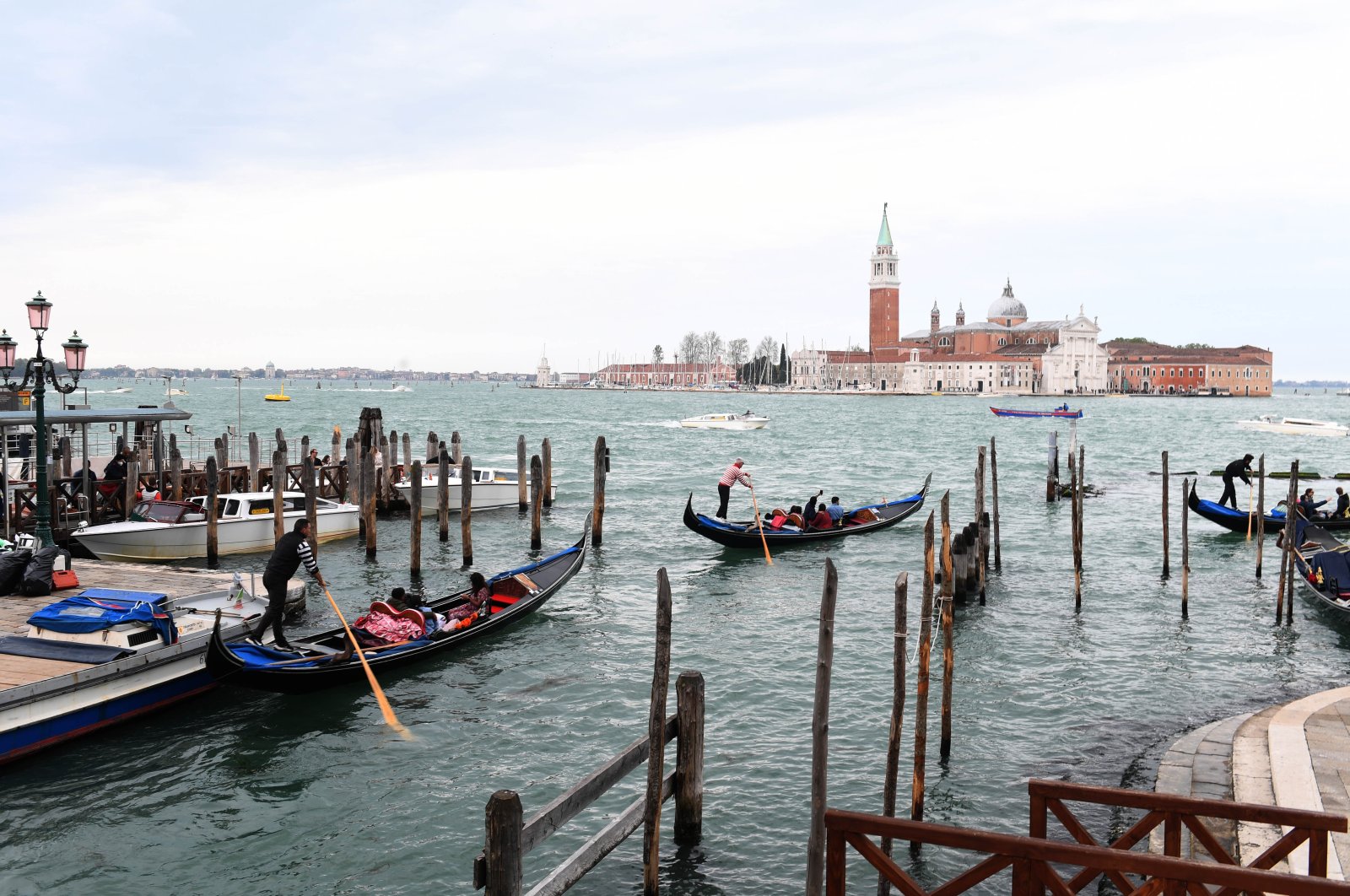
Venice addresses overtourism concerns with a €5 admission fee for day-trippers amid fears of UNESCO blacklist
Venice returns to its tranquil state after the influx of summer vacationers, who typically visit during Italy's mid-August holiday of Ferragosto, in September.
But what does "quiet" even mean here in one of the most packed tourist destinations in the world?
Even now, the alleys around St. Mark's Square and Rialto Bridge are more than full. Backpackers sit on the pavements with pizza in hand. Tourists squeeze down crowded alleys with trolley suitcases in tow. Cruise holidaymakers with name tags follow after them.
The word "overtourism" – tourism at its most extreme and destructive level – was invented for cities like Venice.
Local authorities now want things to change, and the municipal council of Italy's lagoon city decided in September that tourists will have to pay a €5 ($5.4) admissions fee on certain days if they do not stay overnight.
The so-called "contributo d'accesso" (access fee) has been one of Venice's most hotly debated issues in recent months.
More than 5 million visitors come every year. In the high season, there are often more than 100,000 foreigners in the city at any one time, outnumbering the locals but at least 2 to 1. It's no surprise that there are more beds for tourists than there are for locals.
And yet the anger is mainly directed against day-trippers, particularly cruise tourists and other visitors who come in the morning and leave in the evening.
"It's going to be unpleasant," Otto Harting says, describing his family's day trip to Venice. The German family says they arrived at Santa Lucia station at 8.22 a.m., only to depart again at 5.32 p.m.
In between, they rush around the most important sights and take a gondola trip. "It's also crowded at the Eiffel Tower. But I've never experienced anything like this," his wife Bernadette says as they pause on the famous Rialto Bridge.
The two say they would readily pay the fee without much objection. "It can't go on like this," Bernadette says.
It's an opinion that Mayor Luigi Brugnaro shares. "I call on everyone to work together – so that Venice can be saved and become the oldest city in the future," the center-right politician recently said.
The goal, he says, is a "balance of interests" between residents and tourists. Brugnaro has been pushing the plans for admission fees for some time.
They have been postponed and watered down several times, and the initial €5 fee is down from €10 fees initially planned to be in place all year round.
In 2024, short-stay visitors will initially have to pay fees on 30 particularly busy days, likely over Carnival and Easter. The exact dates are still open, however.
Visitors will have to show a QR code on their phone. The "Venice ticket" is to be checked at the railway station and at boat landing areas.
Tourists sneaking in without paying face a fine of €50-300. Children under 14 remain exempt. The revenue – estimated at up to €6 million – is to be used to maintain Venice and avoid further negative impacts from overtourism, advocates say.
Many experts are skeptical that the fee will do much to slow tourist numbers, however.
After all, why would visitors be deterred by a €5 fee for a city that likely already costs them hundreds more to get to and visit?
The entrance fee is tiny when compared to the official fee for a half-hour gondola ride in the evening – now €100. At Caffè Florian on St Mark's Square, a cappuccino costs €11.50. The Bellini cocktail at Harry's Bar costs twice that.
The owner of the landmark bar, Arrigo Cipriani, calls the fee little more than "harassment," an opinion shared by more than a few business owners.
Several citizens' groups, on the other hand, doubt that their municipality is really serious about the plans. The newspaper Corriere della Sera has calculated that the expected revenue is just enough to finance the necessary infrastructure and checks.
Many therefore speculate that the decision – and especially its timing – is connected with the fact that UNESCO is currently discussing whether to blacklist Venice as "world heritage in danger."
In July, experts from the U.N. cultural organization recommended the listing because the city and lagoon are exposed to irreversible changes due to mass tourism and climate change.
This would put Venice in the same league as war zones such as Damascus, Sanaa, or, more recently, Odesa – something the municipality, concerned about its reputation, wants to avoid at all costs.
The last thing Mayor Brugnaro wants is more negative international headlines about overtourism and being declared an endangered city.
